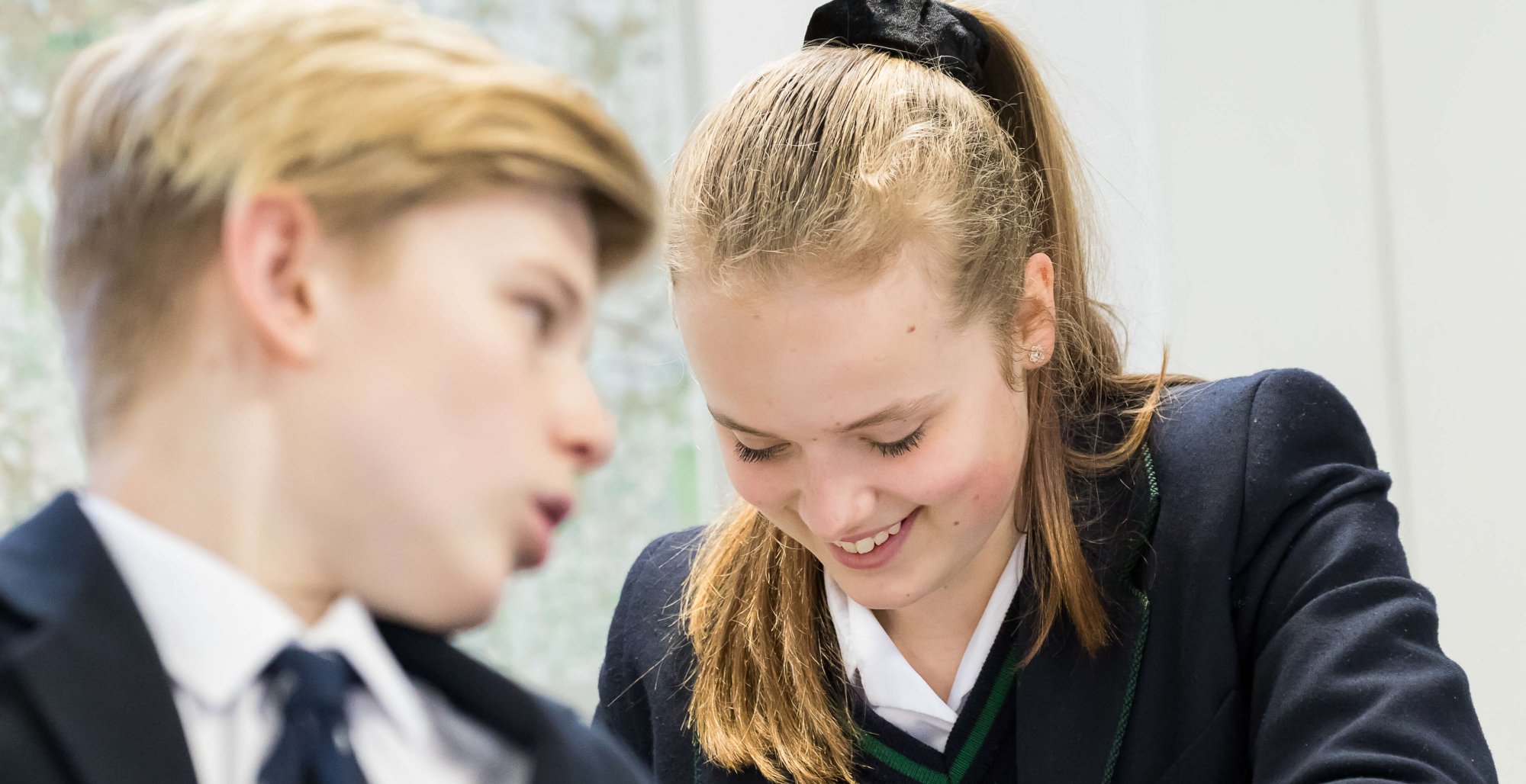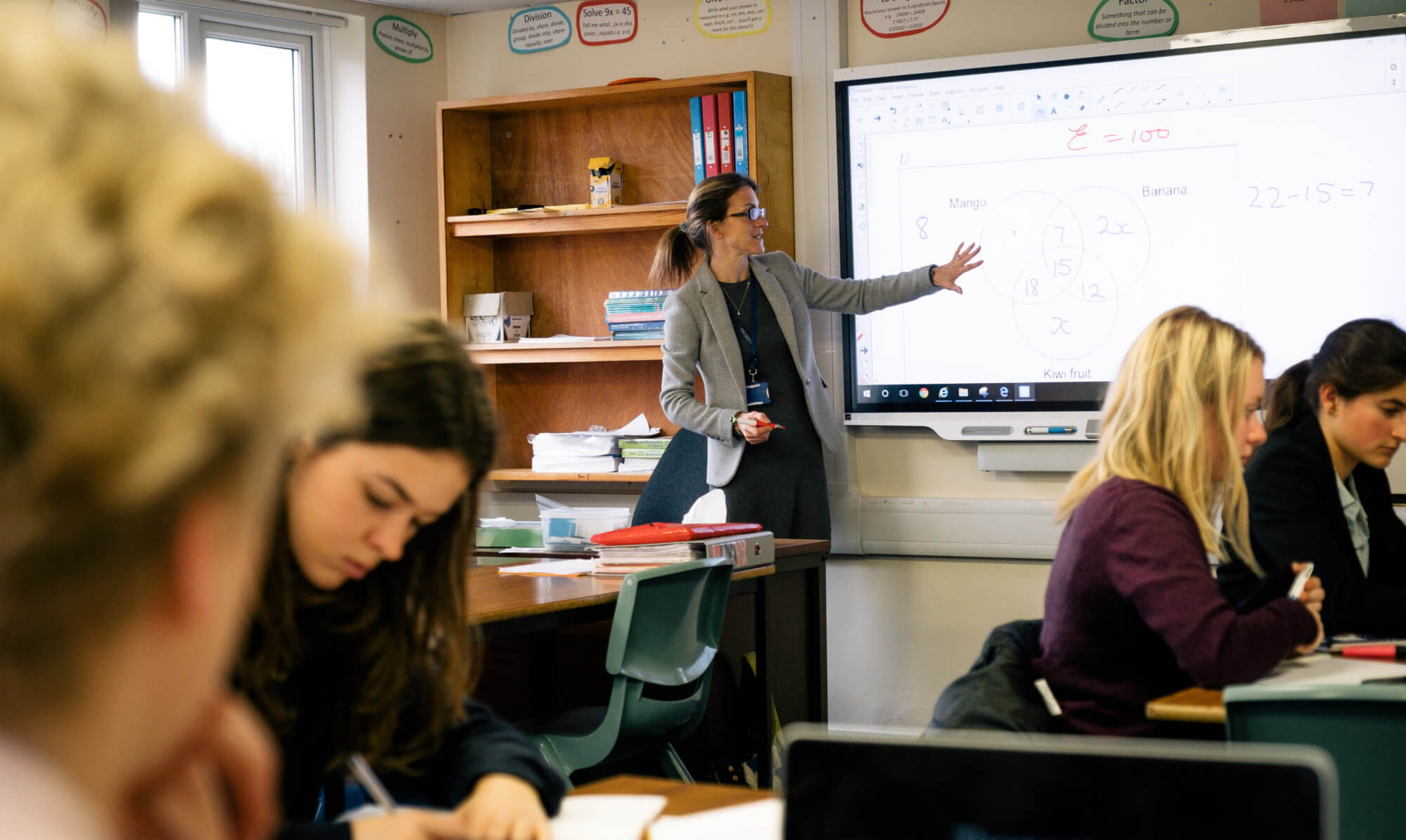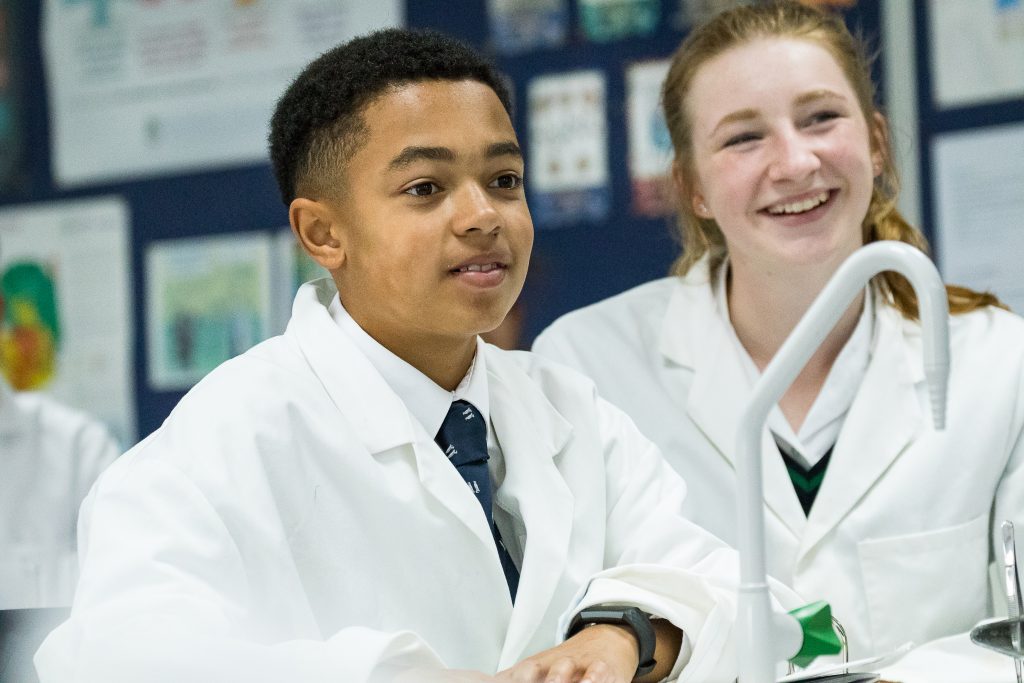
Jerome Bruner, the renowned American psychologist, stated that the primary objective of any act of learning, over and above the pleasure it may give, is that it should serve us in the future.
However, the future for those currently studying at Bradfield is increasingly uncertain. On leaving school our pupils will be propelled into a constantly-shifting social, political and technological landscape where they will be confronted by frequent changes in their personal and professional lives.
What happens in the classroom is our core business.
Contemporary trends in development demand that we not only furnish pupils with the knowledge and understanding that they need to be successful in external examinations, but that they also acquire the skills and habits of mind that will allow them to flourish personally and professionally in the rapidly-changing world that lies beyond Bradfield.
Whilst we are unable to accurately predict what the world will look like in five, ten, or fifty years’ time, we aspire to support the development of powerful, lifelong learners who will leave Bradfield equipped and ready to face the world which awaits them.
Developing learning skills
To achieve this aim, the College seeks to develop the following six ‘Education for Life’ attributes in all pupils: confidence, open-mindedness, resilience, inquiry, communication and innovation. These attributes permeate College life; pupils are provided with the opportunity to develop these key characteristics across the diverse range of learning experiences available to them at Bradfield.
Learning is not solely confined to the classroom, as many powerful learning experiences take place across the co-curricular and pastoral spheres. However, what happens in the classroom is our core business and provides an exciting opportunity for us to challenge both ourselves and the pupils who we have the pleasure of teaching, to actively engage with the broad academic programme offered at the College.
Learning skills are embedded from day one as part of an innovative, skills-based Faulkner’s curriculum, comprising five spheres of learning. The design of these courses is driven by our understanding that the best learning comes when what is being taught is set in context, helping pupils to see its relevance in the world around them. We have broken down walls between subjects, allowing for authentic links to come to the fore, enhancing learning as pupils see how real-world ideas and concepts draw together information and thinking from across the curriculum.
The teaching and learning environment
The vision for teaching at learning at the College is ‘to develop and promote Bradfield’s reputation as one of the leading schools in the country, renowned for the quality of its teaching and learning environment’.
In contemporary education, there is a significant shift towards evidence-informed practice, where the findings of educational research are used to positively inform our pedagogical approach in the classroom.
How can we prepare ourselves and our children for a world of such unprecedented transformations and radical uncertainties?
Yuval Noah Harari
It is clear that the College is rich with a hugely talented and committed body of teachers who care deeply about what they do, giving outstanding support to pupils’ academic, pastoral and co-curricular experiences.
The challenge moving forward is to deliver a dynamic programme of Continuous Professional Development (CPD) opportunities, which allows teachers to further advance their classroom practice, enhancing the quality of teaching and learning in all areas of College life.

Creating opportunities for colleagues to learn from each other through mutual observation, in addition to the establishment of a Teaching and Learning Research Group, has already demonstrated potential to yield a significant impact on the quality of the teaching and learning environment.
A half-termly Bradfield Teaching and Learning Bulletin serves to share the latest evidence-informed approaches with colleagues, providing a collaborative forum where staff can access, engage with and contribute to the sharing of a diverse range of effective and impactful teaching strategies.
It is the relentless support of colleagues in pupils’ academic, pastoral and co-curricular journeys, together with the generosity of spirit, that is so tangible across the College community. Bradfield is a remarkable place that is committed to preparing pupils so that they can flourish and thrive in the constantly shifting sands of contemporary society.



